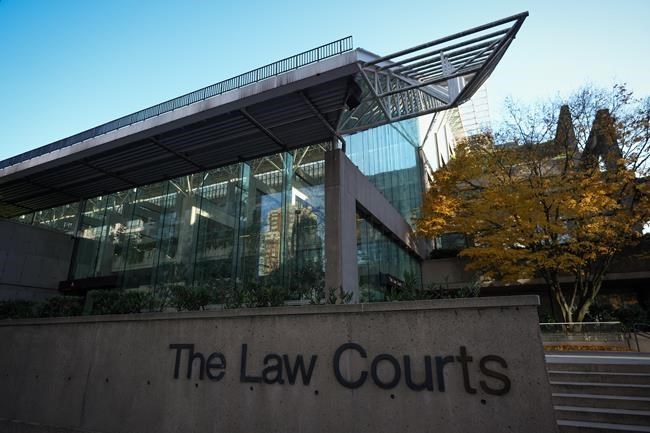VANCOUVER — A Crown lawyer says holdups to the trial of a man found guilty of murdering a 13-year-old Burnaby, B.C., girl were mostly attributable to the defence and "discrete exceptional events," as he argued against the case being thrown out over delays.
Daniel Porte told a B.C. Supreme Court judge on Monday that if those events were subtracted, the remaining delays to Ibrahim Ali's trial would have amounted to about 25 months.
That was within the allowable 30-month threshold set out by the Supreme Court of Canada, he said, putting the onus back on Ali to demonstrate that this was "unreasonable."
Porte said the proceedings occurred during a global pandemic, that there were frequently halts because of Ali's health complaints, and the defence had filed dozens of applications before and during the trial.
He called Ali's lawyers' actions "largely antithetical to their duties."
The court is hearing a so-called Jordan application by Ali's lawyers about the delays and if it is successful, he will be set free without sentencing for the July 2017 killing.
It was not until Dec. 8 last year that a jury found Ali guilty, less than 24 hours after they started deliberating.
The body of the girl, whose name is covered by a publication ban, was found in Burnaby's Central Park the night she was reported missing.
Ali was charged with first-degree murder about one year later when his DNA matched semen found in the girl's body.
Ali, who appeared by video on Monday wearing an orange sweatsuit, faces a mandatory life term with no chance of parole for 25 years.
Defence lawyer Kevin McCullough argued last week his client had been in custody and charged with first-degree murder for more than 63 months by the time the trial ended, more than double the 30-month limit set by the High Court.
McCullough said most of the adjournments in the case were due to mismanagement by the court as well as "trickling disclosure" by the Crown.
Porte rebuffed that argument Monday, saying "full disclosure is not required for dates to be set and for applications to be heard."
He said the Crown provided 45,000 pages of disclosure and more than 2,000 multimedia files to the defence, adding that "the vast majority of the important investigative disclosure" had been provided before April 2019.
The case was "particularly complex," he said, with exceptional unforeseen circumstances that included the COVID-19 pandemic and the fact the defence filed about 60 pre- and mid-trial applications.
He said hearings and trial dates were rescheduled several times between 2019 and the eventual trial in 2023, so the court could hear "lengthy pre-trial applications."
Porte said that during pre-trial hearings, the court heard from more than 100 witnesses, nine expert witnesses and one proposed expert witness.
"Proceedings were frequently brought to a halt for days or weeks at a time on account of the applicant's ongoing complaints about experiencing headaches, illness, pain (and) drowsiness," he said.
Porte said at the start of trial there was a three-week delay after the defence sought and was granted a fitness application. This, he said, was one of the situations that caused the trial, initially scheduled for three months, to drag on for more than double that time.
"In all of the circumstances, it cannot be said that the applicant's right to be tried within a reasonable time has been violated," Porte said.
He later pointed to the timing of Ali's team filing the Jordan application, calling it "illegitimate defence conduct."
"The applicant waited until the day the judge charged the jury to file this application contrary to the Supreme Court's guidance that he must act proactively," Porte told the court Monday.
He said the Crown believes the judge could justifiably rule that Ali waived his rights "by filing the application 63 months after he was charged and arguing it after the verdict."
Last week, McCullough argued the most significant delay could be traced back to August 2020, when Ali's previous lawyers had requested an adjournment for upcoming trial dates due to a scheduling conflict.
He argued the "defence team was offering a proposal to work with court and Crown to best facilitate the hearing of this trial in a timely fashion" but the judge did not agree.
It then took nearly three years for the case to go to trial and McCullough said that did not "jive" with the decision to adjourn.
He asserted that had Ali's previous lawyers not stepped down, the case would have proceeded to trial much more quickly.
On Monday, Porte argued that the previous defence team's lack of availability was a "recurring theme from October 2019 up until the time of their withdrawal in August of 2020."
Porte is expected to continue his arguments Tuesday.
This report by The Canadian Press was first published April 8, 2024.
Brieanna Charlebois, The Canadian Press



